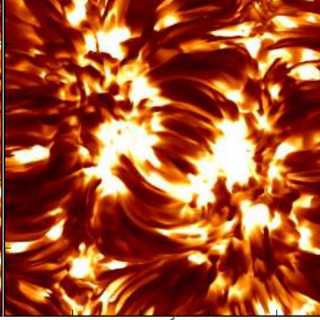Bibcode
Elitzur, Moshe; Asensio-Ramos, A.; Ceccarelli, Cecilia
Referencia bibliográfica
Monthly Notices of the Royal Astronomical Society, Volume 422, Issue 2, pp. 1394-1402.
Fecha de publicación:
5
2012
Número de citas
12
Número de citas referidas
10
Descripción
Double-peaked line profiles are commonly considered a hallmark of
rotating discs, with the distance between the peaks a measure of the
rotation velocity. However, double-peaks can arise also from radiative
transfer effects in optically thick non-rotating sources. Utilizing
exact solutions of the line transfer problem we present a detailed study
of line emission from geometrically thin Keplerian discs. We derive the
conditions for emergence of kinematic double peaks in optically thin and
thick discs, and find that it is generally impossible to disentangle the
effects of kinematics and line opacity in observed double-peaked
profiles. Unless supplemented by additional information, a double-peaked
profile alone is not a reliable indicator of a rotating disc. In certain
circumstances, triple and quadruple profiles might be better indicators
of rotation in optically thick discs.
Proyectos relacionados

Simulación Numérica de Procesos Astrofísicos
La simulación numérica mediante códigos complejos de ordenador es una herramienta fundamental en la investigación física y en la técnica desde hace décadas. El crecimiento vertiginoso de las capacidades informáticas junto con el avance notable de la matemática numérica ha hecho accesible a los centros de investigación de tamaño medio
Daniel Elías
Nóbrega Siverio

Magnetismo, Polarización y Transferencia Radiativa en Astrofísica
Los campos magnéticos están presentes en todos los plasmas astrofísicos y controlan la mayor parte de la variabilidad que se observa en el Universo a escalas temporales intermedias. Se encuentran en estrellas, a lo largo de todo el diagrama de Hertzsprung-Russell, en galaxias, e incluso quizás en el medio intergaláctico. La polarización de la luz
Tanausú del
Pino Alemán